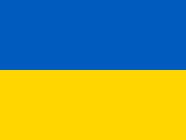
Central and Eastern European countries have been using different strategies to battle ‘homegrown’ disinformation and Russian propaganda. Image by Shutterstock.
Disinformation has been an issue worldwide, especially after the COVID-19 pandemic. Still, the Central and Eastern European experience is unique. The mixture of post-totalitarian legacy, Russian influence in the region, the rise of populism, and the emergence of authoritarian leaders, all happening simultaneously with robust global movements to defend democracy, has led to various types of disinformation and different legal approaches to tackling them.
Disinformation in Central and Eastern Europe is either “home-grown” or spread by Russian-based organisations (so-called “troll factories“) in cooperation with local people who share the same ideological perspective. The focus of disinformation producers also varies from country to country. For example, in Poland, which is predominantly Catholic, it has been connected to homophobia. In comparison, it appears to be more “home-grown” in Hungary, where there are concerns about the authoritarian approaches in Prime Minister Viktor Orbán’s leadership.
One of the key enablers of disinformation is the loss of trust in established political and governmental structures and institutions. At the root of this diminishing trust is the practice of blurring the border between truth and lies during political campaigns and the disappointment that long-anticipated societal changes did not materialise after the fall of totalitarian regimes in the region. These factors have led to a rise in populism, societal polarisation and the spreading of misinformation and disinformation. This worsened during the COVID-19 pandemic, especially in relation to vaccination, and at the beginning of the war in Ukraine.
Russian propaganda
Russian propaganda and disinformation have been present in the region since Crimea’s annexation in 2014. In fact, several online media outlets were established to seed mistrust and unrest in societies. Ultimately, the aim was to build trust in pro-Russian content by capitalising on citizens’ dissatisfaction with the current situation and their sentiment that everything was better and more secure before regime changes.
Examples of media that are prolific disseminators of disinformation are Czech Republic outlets, Protiproud, Aeronet News, and the Telegram-based Czech version of Sputnik News. These outlets have spread hate against immigrants since 2015 and have repeatedly attempted to influence the mainly presidential elections. During the COVID-19 pandemic, they spread conspiracy theories, such as the idea that the coronavirus vaccination is a lethal tool used by Bill Gates to wipe out most of the world’s population. They also helped to prepare the ground for the justification and acceptance of the war in Ukraine with propaganda that portrayed Vladimir Putin as a freedom defender. Their content is widely shared on Facebook – the most influential social media platform for people over 40.
Defensive strategies
Reactions to disinformation have varied from country to country. Baltic states, which were a part of the Soviet Union in the past and are on the immediate border of Russia, are traditionally the most protective of their media markets. Latvians fine and suspend media for biased broadcasting, while Estonians try to develop a more balanced (alternative) broadcasting in the Russian language. In Lithuania, there are plans to set up a special centre to fight Kremlin propaganda.
Similar mechanisms have been established in other countries. For example, in Czechia, the Centre for Combating Terrorism and Hybrid Threats was founded in 2017. With the beginning of the war in Ukraine, the Czech government implemented a three-month ban on disinformation media, which divided opinions. The government also created an envoy for media and disinformation position to create legislation against disinformation – though they cancelled the role after a year. The Czech Ministry of the Interior attempted to back up these measures with a law that would give the state the power to switch off media found guilty of spreading disinformation. However, its progress was paused following a public backlash.
While others focused on defending themselves against the threat of Russian troll factories, Hungary tried to use the general sentiment against the disinformation to empower the ruling regime by passing an Act to contain the Coronavirus in March 2020. Officially, it was aimed at those who intentionally spread false information and distortions that could undermine efforts to protect the public against the virus. But the legislation was widely criticised for the sweeping powers it handed to Orbán. In fact, under the state of emergency, it was possible to put someone in jail for one to five years for spreading anything perceived by the Hungarian institutions as fake news. More than 100,000 Hungarians signed the petition against this “enabling act”.
European Union support
In general, EU institutions support these countries and other Central and Eastern European states in their efforts to defend their democracy and prevent disinformation. Currently, they are creating more and more legislation on transparency and targeting political advertising that misinforms the public. In reaction to the hybrid war with Russia and partially to what is happening with media freedom in Hungary and Poland, the European Commission adopted the European Media Freedom Act in September 2022. It must pass through European Parliament and member states’ governing bodies, which will be difficult but feasible. Considering the economic and political insecurities and fears that adopting new legislation on disinformation would alienate voters, EU membership can be seen as a convenient benefit, as countries can sell a new law as the will of the Union.
Opinions expressed on this website are those of the authors alone and do not necessarily reflect or represent the views, policies or positions of the EJO or the organisations with which they are affiliated.
If you liked this story, you may also be interested in: From ChatGPT to crime: how journalists are shaping the debate around AI errors
Tags: Covid-19 reporting, Crimea, disinformation, Russian Propaganda, War in Ukraine












































